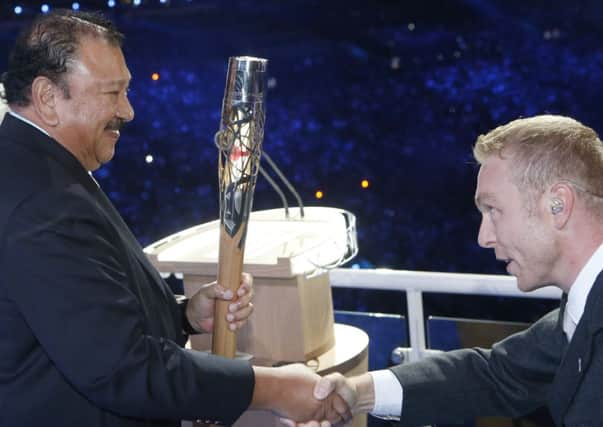Comment: Sport can help kids with Down’s syndrome


For children with Down’s syndrome (DS) to take part in sport it is not only an opportunity to socialise and exercise, it is also key to their quality of life as they are more likely to suffer from health problems such as obesity or sleep apnoea.
The Scottish Government’s new strategy “Giving children and young people a sporting chance” has a clear vision at its core, that “Scotland is a great environment for children and young people to embark on lifelong participation in sport”.
Advertisement
Hide AdAdvertisement
Hide AdDown’s Syndrome Scotland supports this vision and hopes that the strategy will effectively improve access to sport for all children and young people with disabilities. But, as the Scottish Government also acknowledges, the strategy is “just one part of the process” and “wider collaborative effort will be needed to achieve the vision”.
The words “collaboration”, “inclusion” and “participation” are often used to promote initiatives or policies and demonstrate one’s commitment to an equal society. But words do not always translate into actions. The reality is that more needs to be done in Scotland today to ensure that our society is inclusive, collaborative and that it truly encourages all children to participate in sport and get active, including children with DS.
People with DS benefit greatly from continuous involvement in physical activities from an early age and throughout their life. Practising a sporting activity improves children’s speed and agility skills. Importantly, it also helps to develop social skills by playing with others and interacting with staff. The earlier children and young people with DS learn the importance to be and stay active, the more likely they are to pursue any physical activity as they grow older.
Awareness is not enough though and parents still face too many barriers before finding a suitable sporting activity for their children. The issue of cost is, of course, a significant one whether it relates to the membership fee to join a club or the cost of transport to get to sporting venues. The lack of sporting facilities in some areas and the challenge to find a club willing to accept children with DS are other significant problems that need to be addressed. One of our members reported that they had to find another sporting venue to go to as their child grew older due to the absence of changing rooms for people with disabilities in the first facility. What does this say about inclusion and encouraging all children and young people to be active?
Moreover our members’ experiences reflect the importance of training for staff in leisure centres and schools. There is excellent practice in certain areas but this is not consistent throughout the country. Coaches, teachers, volunteers and support staff all need to be aware of conditions like Down’s syndrome and how to support these children and young people at their clubs.
One parent suggests that access to sporting activities could become a requirement to be included in a Child’s Plan (the new name for an action plan to meet a child’s individual needs under Getting It Right For Every Child), thus ensuring the importance is recognised. Supportive staff, both in and out of schools, are crucial to keep children motivated and also encourage them to try new sports. We would suggest that examples of good practice should be shared more widely to help remove barriers and encourage others to see how children with DS can access sport.
With the right support, all children can participate in sport. Our membership includes successful sportsmen and women. One of our members is part of the Highland disability swimming team and is also working towards a black belt in taekwondo, another works as a gym coach. Down’s Syndrome Scotland’s swim team was also a finalist for the Sporting Chance Award at this year’s Scottish Charity Awards. By celebrating the success and talents of young people with disabilities, more children could be encouraged to get involved in a variety of sports. This would also increase awareness of disability in society. Each child should be able to practise the sport of their choice. For some it might be at competitive level, for others it won’t. Children should not be left behind because they cannot or do not want to take part in competitions. Enjoying sports is what counts.
Ultimately, the impact of any local or national sporting initiative will be limited if children – regardless of their ability and skills - think they cannot take part in an activity and do not feel welcome.
• Rachel Le Noan is policy officer for Down’s Syndrome Scotland www.dsscotland.org.uk